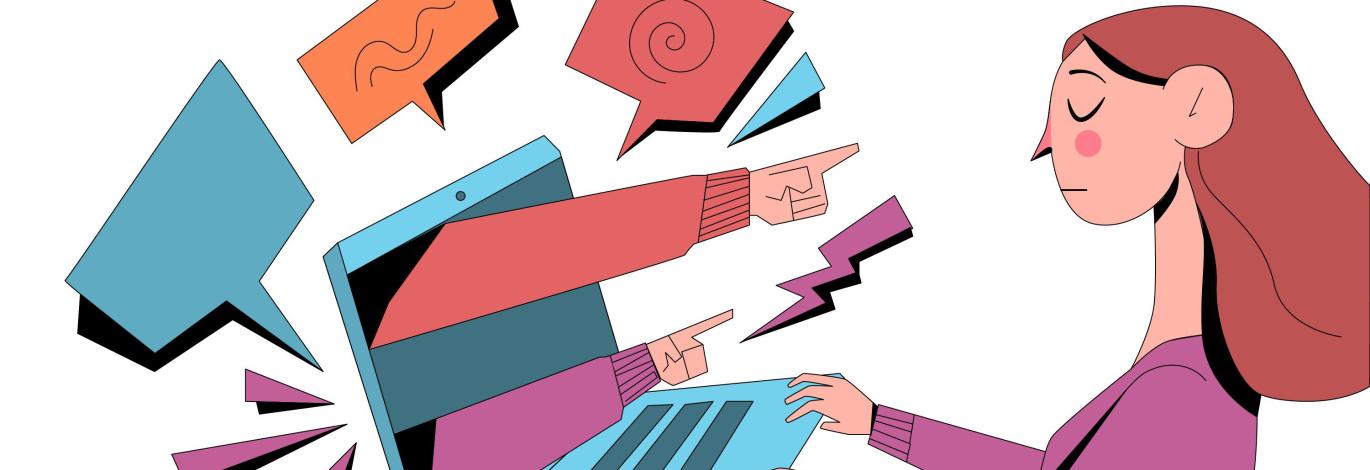
In the dynamic realm of content creation, the surge in online presence has brought forth a parallel rise in risks, especially for female content creators in Pakistan. These creators have diverse posting habits, from crafting thought-provoking visual content to advocating for social and political change, and their work encompasses a broad spectrum of topics such as gender equality, entertainment, and motivational speaking. Our research studied the content and the habits of these social media creators, shedding light on gender disparities and the spillover of online threats into the real world. This study is methodologically grounded in understanding how digital users articulate their privacy and security issues. Gender emerges as a pivotal factor shaping content creators' experiences. Female content creators bear a disproportionate burden of negative experiences, including elevated levels of hate, vitriol, and negative feedback, compared to their male counterparts.
The disparities between genders in an online space emerge from deeply rooted societal norms, such as not providing space to females in society and limiting opportunities for them in physical space, which also translates into their online experience. In a patriarchal society like Pakistan , the online presence of female content creators is often perceived as a threat as it provides them with a platform to express themselves. This leads to concerted efforts to restrict their visibility, and these efforts come in the form of hate, harassment, unsolicited messages, bullying, and stalking. These entrenched societal norms, including rigid gender roles, expectations, and deeply ingrained misogyny, significantly amplifies this gender-based discrimination in an online setting. The visibility restriction often results from a complex interplay of familial pressure, cultural norms, and the alarming prevalence of hate-filled comments on their social media profiles. To provide a more nuanced understanding of these challenges, our research explored first-hand experiences from respondents, shedding light on their personal experiences. As one participant aptly stated,
'I constantly feel the pressure to conform to traditional roles and expectations, and the online space often amplifies this pressure.'
One significant aspect we explored is how online threats spill over into the real world; female creators are stalked and harassed in real life by their online followers. Topics like female empowerment, discussion on gender, and raising issues for minorities are some topics deemed taboo or inappropriate to be talked about online. There is a lot of resistance and harassment for creators who talk about these issues. Female participants reported facing unique challenges, such as being unable to promote menstrual hygiene products or share pictures with bold dressing. Female content creators, in particular, face unique challenges when threats manifest beyond the digital realm. Impersonation attacks emerged as a particularly concerning issue in our study. These attacks involve malicious actors who impersonate content creators, often ending up with dire consequences for the creator. As one respondent expressed:
'These impersonation attacks can lead to the removal of creators from platforms, damage their reputation, and, in extreme cases, even lead to physical harm. The malicious actors behind these attacks remain hidden, making it difficult to trace and hold them accountable.'
Impersonation attacks further intensify the need for robust protective measures. Unresponsive platform support and ineffective defence mechanisms for many females give them few options. Consequently, they turn to behavioural defences, resorting to self-censorship or seeking help from people around them, mostly family and friends. Moreover, the non-cooperation from the authorities and lack of legal aid compounds these issues. Seeking help from families can be complex, especially for females, as victim-blaming stems from the patriarchal norms in our society. One notable revelation is that many content creators adopt security practices only after falling prey to attacks, and this reactive approach highlights the need for proactive education and awareness campaigns for these content creators to empower them with legal support and the tools and knowledge to safeguard themselves in an online setting.
Our research paints a complex picture of the content creation landscape in Pakistan, where gender disparities, real-world consequences of online threats, and challenges in seeking protection are significant issues. Understanding these dynamics is crucial for crafting practical solutions that promote a safer and more equitable environment for content creators, regardless of gender or background.
- Shanza is a Computer Science senior at LUMS (RA Interactive media lab / TA).
- Waleed Arshad is a CS Senior at LUMS and Research Assistant at Interactive Media Lab and CISPA Institute.
